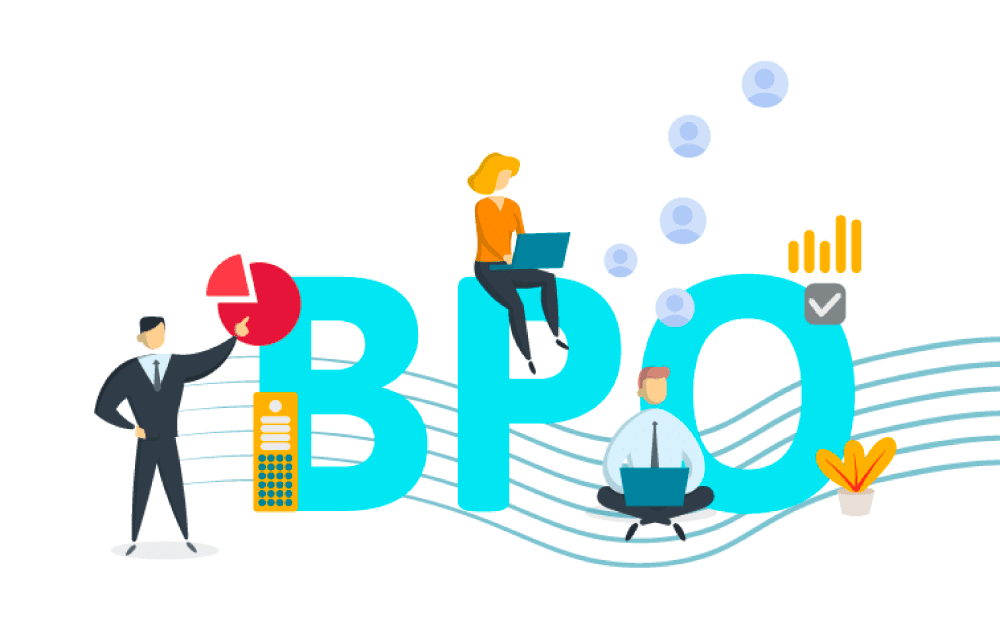Let’s not sugarcoat it: our industry is obsessed with acronyms. From VoIP, SIP, DID, SMS, MMS, UCaaS, CCaaS — you get the picture. Telecom pros sprinkle acronyms on their morning oats. And even if we know what the letters stand for, sometimes, we forget what they mean. While we have a handy guide on common telecom acronyms that wades through the alphabet soup, today we’re digging deeper into one: BPOs.
BPOs have been a staple in other countries for a while, and now they’re popping up all over the U.S., especially in the contact center industry. But what exactly are BPOs? Are they really worth exploring for small and mid-market companies? Long story short, yes. But to help you get started in your exploration, here are four of the most frequently asked questions we hear about BPOs as a CX provider.
1. What is a BPO?
BPO is short for business process outsourcing. Basically, they’re a third-party company that handles a variety of operations and services for another company through outsourcing. For instance, a law firm may partner with a BPO for its collections process. The BPO team takes over all operations surrounding the collections process, letting the firm focus on more critical tasks.
2. What services and operations are handled by BPOs?
Everything! BPOs specialize in specific industries and services, so they perform a ton of tasks and functions. Usually, these services fall into one of three buckets: inbound, outbound, or both.
Inbound services involve responding to support calls or messages. However, they can include processing orders, running analytics, and dispatching services. By outsourcing these services, companies save money because they don’t need extra employees to handle call volumes or work outside traditional hours.
Outbound services include tasks like telemarketing and cold calling, closing deals and sales with leads, and conducting market research. These aren’t just time-consuming, tedious tasks. They also require agents to know about sales and the company. Having a dedicated group of specialists who know the field and the company ensures more leads are reached and converted to customers, leading to more money for the company.
Are you thinking about partnering with a BPO? Check out this blog post on 10 things to consider before hiring a BPO call center.
3. Are there different types of BPOs?
There are two main categories of BPOs based on their proximity to the partner company.
- Offshore BPOs operate in a different country than the partner company. This is a good option for companies that need 24/7 service and support. Think of a company in the U.S. that outsources its operations to Portugal.
- Nearshore BPOs operate in a different, yet closer, country to the partner company. Think of a company in the U.S. that outsources services to a company in Mexico or Canada.
4. What’s the connection between BPOs and contact centers?
BPOs often handle incoming or outgoing calls on behalf of other companies, so they sometimes operate as a contact center. Some companies give BPOs part of their services, like handing over sales calls to the BPO while service calls stay in-house. Other companies may route their overflow calls to a BPO or have their entire call volume managed by the BPO.
Learn more about outsourcing to outsourcing to a BPO with CXHub.
Expand Your Workforce with CXHub
If you’re interested in exploring ways to scale your workforce without a ton of overhead, consider CXHub. It’s our BPO marketplace that connects you with the services you need to grow your operations. Using the advanced RFP engine, align your functional and financial requirements and we’ll curate a shortlist of pre-vetted, best-fit outsourcing partners for you. And then when you confirm your preferred BPO partner, CXHub creates the contract, assists with onboarding, and helps manage the partnership.
Want to learn more about labor management? Check out CXHub.
This post was published on July 23, 2023, and was updated on February 22, 2024.








